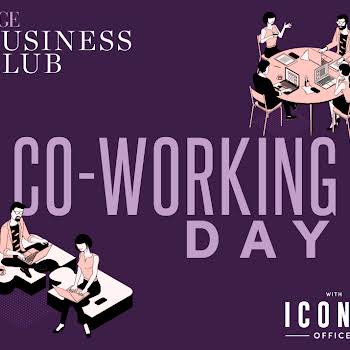By Sinead Brady
15th Oct 2017
15th Oct 2017
Whether you love your job or hate it, chances are you think about your workload after hours. This is pretty normal and let’s face it, who doesn’t think about tomorrow’s to-do-list, ‘that’ meeting, a presentation or a looming deadline over the course of the evening. You are only human after all. Yet there is a point at which thinking about the work you have to do, outside of work, becomes both invasive and stressful. This is the juncture at which thinking about tasks, jobs and projects while you are not there affects your capacity to rest, relax and recuperate. This not alone makes you feel miserable but affects your capacity to perform optimally the following day. To break this cycle and take control of your thoughts about work, outside of work, here are some things you can do.
Acknowledge work is important
You would think that the simple solution to thinking about work while not there is to simply stop. If you could just stop, you would already have done just that! This mixed messaging associated with thinking one thing and telling yourself to do something else sets you in an emotional tailspin.
Instead, as thoughts of work rumble around your head, acknowledge them. Say ‘Yes, I am thinking about work because my job/career is important to me. I am worried because I want to do my best and do a good job’. This type of honesty aligns your cognitions and your feelings, rather trying to ignore or swallow them. Once you have done this you MUST follow with your call to action – the 60-second buffer.
60-second buffer
Once you acknowledge what is going on, take 60 seconds to plan your way forward. Figure out the most annoying unfinished task on your desk at the end of the day. Identify and name it. Then answer the Where, When and How you are going to deal it e.g. ‘When I sit at my desk at 9am tomorrow morning I am going to draft an email to client X’. While this won’t stop you from thinking, or talking, about your annoying work colleague, a run in with your boss or the bad office coffee an end of day plan puts you back in control. You know what you have to do in the morning and now have a plan to tackle your to-do-list which in turn helps limit your worry time.
Transition Rules
Normally, I don’t like the word ‘rules’ but in theses circumstances, here at A Career to Love HQ, we feel justified in using it here. The rule is, you physically go to the office and at the end of the day you go home. Your commute home is the physical act that separates you from the office. Yet just because you leave work physically, it doesn’t mean you leave it psychologically and very few of us have rules in place for the psychological transition from work. The good news is that these psychological transition rules are highly effective once practiced routinely. While it is different for everyone, there are a few tips you might like: as you leave the office – listen to music and play it loudly as you leave, get off the bus, train or tram a stop early and walk briskly home, grab a coffee and magazine, put on lipstick, spray your favorite perfume or download a just for fun podcast. Make this your routine every single evening as you leave work. This is your cognitive trigger that your time is done and that you are getting out of work and transitioning into your life outside work.
Your quick recap to help you stop obsessing about work outside of hours:
Begin by acknowledging that work is important,
Plan your way forward with a 60-second buffer and
Incorporate some transition rules into your routine to help you leave work psychologically as well as physically.
Remember, if you don’t your own version of success, somebody will do it for you.
Check Out Sinéad Brady’s website “A Career to Love”
Twitter: @CareertoLove























